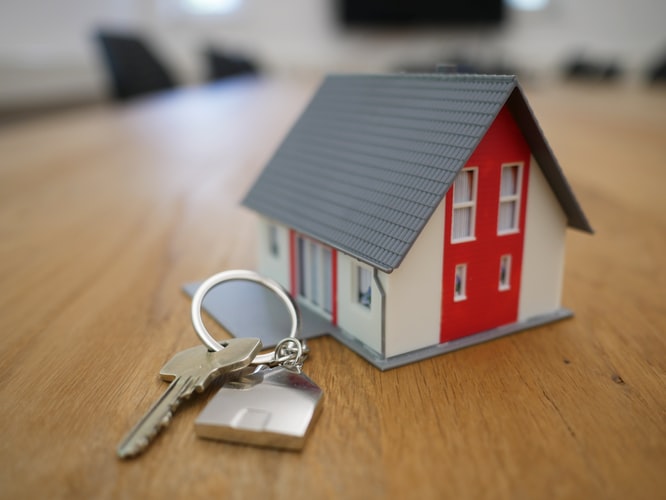Airbnb in Philadelphia: The Business, The Economics, and The Laws
4 Mins Read
Published on: 05 March 2024
Last Updated on: 21 June 2024

toc impalement
In the bustling city of Philadelphia, the Airbnb market has become a dynamic aspect of the local economy. With the city’s rich history, cultural heritage, and booming tourism sector, short-term rentals through platforms like Airbnb have flourished.
However, recent changes in regulations and market trends have brought new challenges and opportunities for hosts and guests alike.
Market Trends and Statistics

Intriguing trends and statistics mark Philadelphia’s Airbnb landscape. The typical daily rental price in the city holds steady at $97, offering an economically friendly rate for visitors. This affordability encourages more spending in the local economy as guests explore Philadelphia’s attractions.
However, there is a significant seasonal variation in rental prices, with July seeing a drop to just $9. It contrasted sharply with the $80 average in February.
Occupancy rates further depict the market’s dynamics, averaging at 37% annually. This rate peaks at 51% in September, indicating a higher demand for accommodations during early fall compared to post-winter months.
Interestingly, larger properties, especially five-bedroom homes, appear to be the most lucrative investments, with 42.93% of these properties being in high-yield territories.
Recent Regulatory Changes

The Philadelphia government has introduced new regulations to manage the burgeoning short-term rental market. These laws, effective from January 1, 2023, have brought significant changes for Airbnb and other short-term rental properties.
Property owners are now required to obtain zoning permits and comply with various other regulations, including obtaining lead paint certifications and ensuring their properties meet city codes.
The new law necessitates a “limited lodging operator” license for short-term rental hosts who reside in the unit. Those renting out properties where they do not live must obtain a hotel license.
This change has led to a significant reduction in the number of Airbnb and VRBO listings, with over 1,850 hosts being delisted since the enforcement began.
Economic Implications

These regulatory changes have profound implications for the local economy. The shrinking number of short-term rental options could impact tourism and the ancillary businesses that depend on it.
Moreover, the new regulations have affected small business owners who rely on rental income, forcing many to shift to long-term rentals or navigate the complex process of securing the needed Airbnb permits.
Business and Legal Considerations
For those considering entering the Airbnb market in Philadelphia, understanding the business and legal landscape is crucial. Operators must now pay for a conventional city business license, clear code violations, obtain lead paint certifications, and disclose ownership structures. Non-compliance could result in fines of up to $1,000 per day.
Moreover, all short-term rental operators must use registered booking agents like Airbnb, which are licensed by the city. This move is part of a broader effort to ensure that short-term rentals operate fairly and within the legal framework, leveling the playing field with traditional hotel businesses.
What Are The Rules About Short-Term Rentals In Philadelphia?
In the Philadelphia area, you are allowed to legally rent out any property that you have, whether it’s a room or an apartment, for about 30 days or less. The city of Philadelphia terms this as a short-term rental.
There are different types of rental apps that you can look into, such as Booking.com, Airbnb, and Vrbo. Although there are certain permits, licenses, and business taxes that you need to take care of before you can start renting.
There are two types of short-term rentals, and they have separate permits and licenses. These two types are:
- Rentals where the host lives at the property.
- Rentals where the host doesn’t live at the property.
Rentals Where The Host Lives At The Property (Limited Lodging)
- Zoning Permit for Visitor Accommodation Use
- “Fee is$25 for one and two-family dwellings or $100 for all other buildings to apply, $174 to issue the permit.”
- “Hosts can apply for a zoning permit online at eclipse.phila.gov or in person at the Permit and License Center at 1401 John F. Kennedy Blvd. on weekdays from 8 a.m. to 3:30 p.m., by calling 311 or scheduling an appointment online.”
- Rentals License
- “Fee: $20 to apply, $150 for a license (but $20 application fee is applied toward the license fee).”
- “Hosts can apply for a Limited Lodging License online at eclipse.phila.gov or in person at the Permit and License Center at 1401 John F. Kennedy Blvd. on weekdays from 8 a.m. to 3:30 p.m. by calling 311 or scheduling an appointment online. This license is renewed each year.”
The Rentals Where The Host Doesn’t Live At The Property. (Rentals)
- Zoning Permit for Visitor Accommodation Use
- “Fee: $25 for one and two-family dwellings or $100 for all other buildings to apply, $174 to issue the permit.”
- “Hosts can apply for a zoning permit online at eclipse.phila.gov or in person at the Permit and License Center at 1401 John F. Kennedy Blvd. on weekdays from 8 a.m. to 3:30 p.m. by calling 311 or scheduling an appointment online.”
- Rentals License
- “Fee: $63 per unit.”
- “Hosts can apply for a Rental License online at eclipse.phila.gov or in person at the Permit and License Center at 1401 John F. Kennedy Blvd. on weekdays from 8 a.m. to 3:30 p.m., by calling 311 or scheduling an appointment online. This license is renewed each year.”
Conclusion
The Airbnb market in Philadelphia presents a unique blend of opportunities and challenges. While the business can be lucrative, particularly in high-yield areas and during peak tourist seasons, the recent regulatory changes require careful navigation.
Hosts and investors must stay informed about local laws and market trends to make the most of their ventures in this vibrant city.
Understanding these dynamics is essential for anyone looking to participate in Philadelphia’s short-term rental market, whether as a host, investor, or guest. With careful planning and adherence to regulations, the Airbnb business in Philadelphia can continue to be a vital part of the city’s economy.
Read More


















Comments Are Closed For This Article